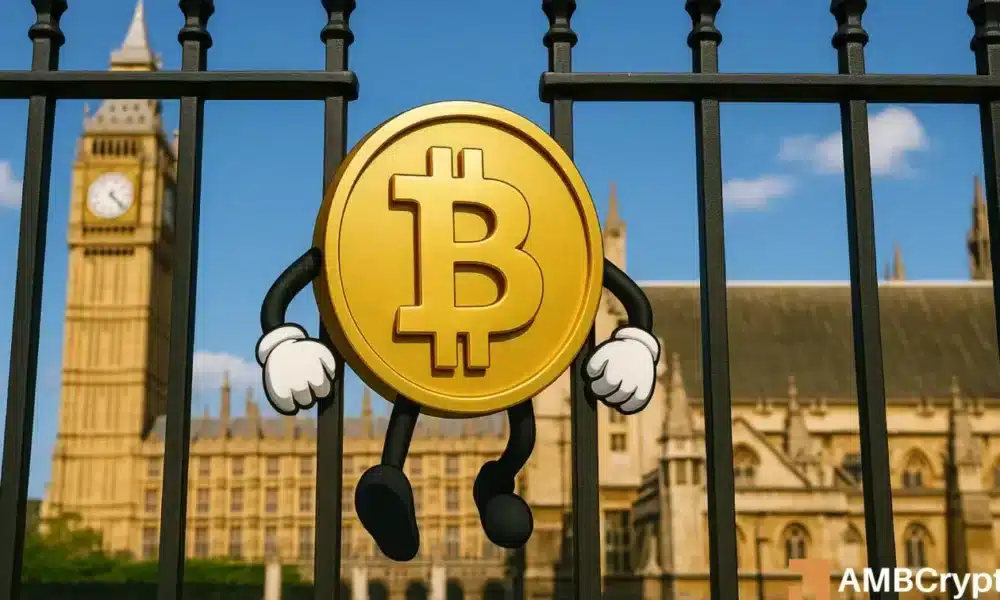The UK Opens Up: Bitcoin ETNs and Stablecoins in Focus
As the cryptocurrency landscape continues to evolve, the United Kingdom is taking significant steps to broaden access for retail investors. On October 8th, the Financial Conduct Authority (FCA) officially lifted its ban on Bitcoin exchange-traded notes (ETNs), marking a pivotal moment for UK investors interested in digital assets. This article explores what Bitcoin ETNs are, the implications of the FCA’s decision, and how the Bank of England is adapting its strategy towards stablecoins.
Understanding Bitcoin ETNs
Bitcoin exchange-traded notes (ETNs) are innovative financial instruments designed to mirror the price movements of Bitcoin without requiring investors to own the cryptocurrency directly. Functioning as unsecured debt instruments, ETNs allow investors to gain exposure to Bitcoin’s performance through regulated channels. With the FCA’s recent ruling, retail investors in the UK can now access ETNs linked to both Bitcoin and Ethereum, provided these products are listed on recognized exchanges like the London Stock Exchange. This shift represents a significant opportunity for investors who have been hesistant about entering the crypto space due to regulatory concerns.
Implications of the FCA’s Decision
The lifting of the ETN ban has been met with enthusiasm from the crypto industry. Industry leaders, including Susie Violet Ward, CEO of Bitcoin Policy UK, emphasize that enabling retail access is a crucial step for the UK. However, the introduction of ETNs comes with stringent listing, disclosure, and distribution guidelines to ensure that investors are adequately informed and empowered. This cautious approach not only protects consumers but also instills greater confidence in the cryptocurrency market, potentially attracting new participants.
The Role of Stablecoins in the UK Economy
In parallel to the developments surrounding Bitcoin ETNs, the Bank of England is also taking a more flexible stance on stablecoins. Recent reports indicate that the central bank is prepared to grant exemptions to certain firms from proposed limits on holding stablecoins. This is particularly beneficial for crypto exchanges that require substantial stablecoin reserves to facilitate liquidity and settlement. By allowing stablecoins to act as settlement assets within the Bank’s Digital Securities Sandbox, the UK is crafting a controlled environment to explore blockchain-based trading and issuance.
The Stablecoin Landscape: A Global Perspective
The move to embrace stablecoins comes at a crucial juncture, with various countries defining their own regulatory frameworks. The U.S. has made strides with the GENIUS Act, which aims to establish guidelines for dollar-backed stablecoins, creating a competitive landscape that the UK must navigate. Additionally, China is reentering the cryptocurrency space through Hong Kong, with innovative products like AxCNH, a stablecoin pegged to the offshore Chinese Yuan. As these changes unfold, the global stablecoin ecosystem is evolving rapidly, placing pressure on the UK to keep pace or risk falling behind.
Navigating the Future of Digital Assets
As the UK explores these avenues, the country stands at a crossroads, balancing innovation with regulation. The FCA’s lifting of the ETN ban and the Bank of England’s approach to stablecoins signal a willingness to engage with the dynamic cryptocurrency ecosystem. Moving forward, it will be crucial for the UK to develop clear and comprehensive regulations that not only safeguard investors but also foster a competitive environment for crypto-related businesses.
Conclusion: A Promising Horizon
The recent developments in the UK regarding Bitcoin ETNs and stablecoins represent significant strides towards integrating digital assets into mainstream finance. These changes provide a robust framework for retail investors who are eager to explore cryptocurrency while maintaining regulatory oversight. As the landscape continues to shift, the UK must remain agile, crafting policies that encourage innovation while protecting consumers in this rapidly evolving market. With the right balance, the UK has the potential to be a leader in the global digital asset space.
















